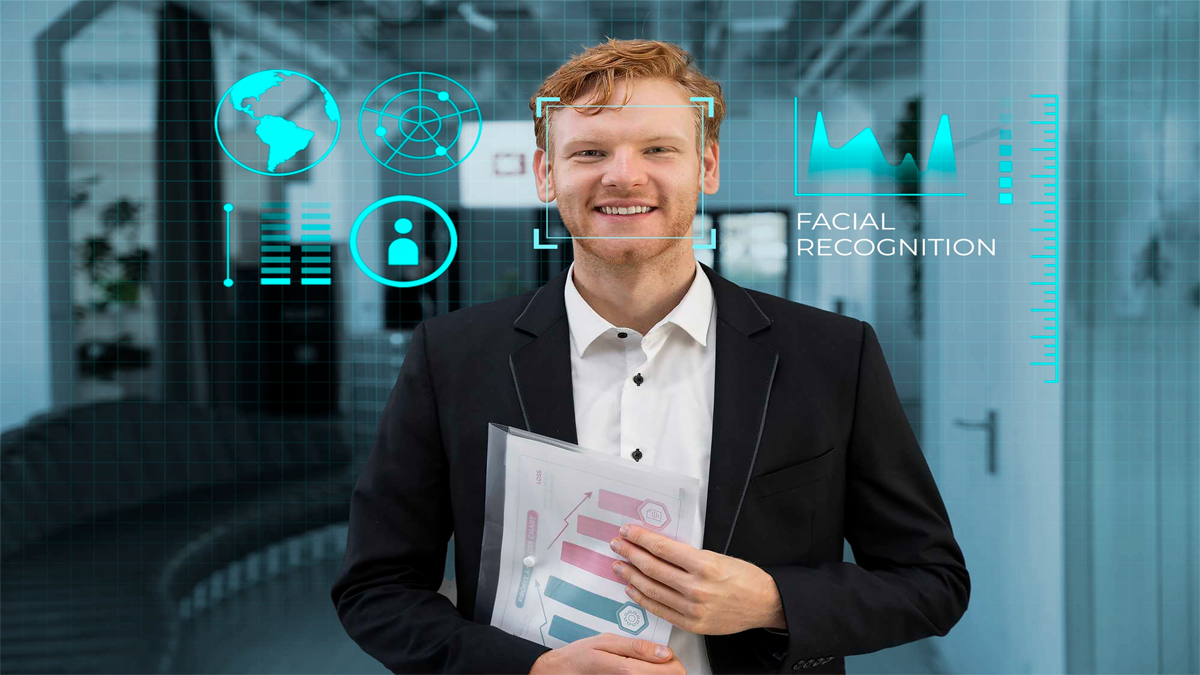In today’s competitive market, creating a personalized customer experience is no longer a luxury—it’s a necessity. AI in personalizing customer experiences is reshaping how businesses engage with their customers, offering tailored interactions that boost satisfaction and loyalty. This article dives deep into how AI is transforming personalization and its impact on business growth.
Understanding AI in Personalizing Customer Experiences
Artificial intelligence (AI) enables businesses to analyze vast amounts of customer data and deliver hyper-personalized experiences. Whether it’s recommending products, predicting customer needs, or creating tailored marketing campaigns, AI has become the backbone of personalization strategies.
Key Features of AI in Personalization
- Behavioral Analytics: Understanding customer behavior through data analysis.
- Real-Time Personalization: Delivering tailored experiences instantly.
- Predictive Insights: Anticipating customer needs before they arise.
Why Personalization Matters in Customer Experience
1. Enhances Customer Satisfaction
Personalized experiences make customers feel valued, leading to higher satisfaction levels. For instance, an AI-driven chatbot that remembers past conversations can provide faster and more relevant responses.
2. Boosts Customer Retention
Personalization fosters loyalty. Customers are more likely to return to brands that offer experiences aligned with their preferences.
3. Increases Revenue
Tailored recommendations and targeted marketing campaigns lead to higher conversion rates and increased sales.
- Example: Netflix uses AI to recommend shows based on viewing history, increasing viewer engagement.
Applications of AI in Personalizing Customer Experiences
1. Personalized Product Recommendations
AI algorithms analyze purchase history, browsing behavior, and preferences to suggest relevant products.
- Example: Amazon’s recommendation engine contributes significantly to its sales by offering highly targeted suggestions.
- Benefit: Increases upselling and cross-selling opportunities.
2. AI-Powered Chatbots
AI chatbots provide real-time support, understanding customer intent and offering tailored solutions. They can adapt their responses based on the customer’s history and preferences.
- Example: Sephora’s chatbot offers beauty product recommendations based on skin type and preferences.
3. Dynamic Pricing
AI analyzes market trends, customer behavior, and competitor pricing to offer personalized prices. This strategy ensures competitiveness while meeting customer expectations.
- Example: Airlines and e-commerce platforms use AI to offer dynamic pricing for flights and products.
4. Personalized Marketing Campaigns
AI identifies customer segments and tailors marketing messages for each group, ensuring higher engagement rates.
- Example: Spotify’s “Wrapped” feature uses AI to create personalized playlists for users, boosting brand loyalty.
5. Predictive Customer Insights
AI predicts future customer needs based on past interactions and current trends. Businesses can use these insights to design proactive strategies.
- Example: A fitness app using AI to suggest new workouts or meal plans based on user activity.
How AI Personalizes Experiences Across Industries
1. E-Commerce
E-commerce platforms leverage AI to enhance shopping experiences through personalized recommendations, dynamic pricing, and custom promotions.
- Case Study: ASOS uses AI to suggest outfits based on customer preferences, increasing average order value.
2. Healthcare
AI personalizes patient care by analyzing health records, predicting conditions, and suggesting treatment plans.
- Example: Telemedicine platforms recommend tailored health plans based on patient history.
3. Hospitality
Hotels use AI to offer personalized guest experiences, from tailored room settings to curated travel recommendations.
- Example: Hilton uses AI to customize guest stays by remembering preferences such as room temperature and dietary requirements.
4. Banking and Finance
AI personalizes financial services, offering custom investment advice, spending insights, and fraud prevention alerts.
- Example: Capital One’s Eno chatbot provides tailored account insights and budgeting tips.
The Role of AI in Improving Customer Experience Metrics
AI-powered personalization impacts several key metrics critical for customer experience:
- Customer Lifetime Value (CLV): Tailored experiences encourage repeat purchases and long-term loyalty.
- Net Promoter Score (NPS): Personalized interactions boost customer satisfaction and likelihood of recommendations.
- Conversion Rates: AI-driven recommendations and targeted campaigns lead to higher conversions.
Challenges of AI in Personalizing Customer Experiences
Despite its benefits, implementing AI in personalization comes with challenges:
1. Data Privacy Concerns
AI relies on large datasets, which raises concerns about customer privacy. Businesses must ensure compliance with regulations like GDPR and CCPA.
2. High Implementation Costs
AI systems can be expensive to develop and integrate, especially for small businesses.
3. Over-Personalization
Excessive personalization can make customers feel uncomfortable or overly monitored. Striking the right balance is crucial.
Best Practices for Using AI in Personalization
1. Focus on Data Quality
High-quality data is essential for accurate AI predictions. Businesses should ensure data is clean, relevant, and up-to-date.
2. Start Small
Begin with a specific area, such as product recommendations or email marketing, and gradually expand AI implementation.
3. Maintain Transparency
Be upfront with customers about how their data is used. Offering opt-in options builds trust.
4. Continuously Optimize
AI systems should be regularly monitored and updated based on performance and customer feedback.
Future Trends in AI-Driven Personalization
The future of AI in personalizing customer experiences is bright, with emerging trends set to revolutionize the industry:
1. Hyper-Personalization
AI will leverage real-time data to create even more tailored experiences, such as personalized AR/VR shopping experiences.
2. Emotion AI
AI systems will analyze customer emotions to adapt interactions, ensuring a more empathetic approach.
3. Voice-Activated Personalization
Voice assistants will deliver personalized experiences, such as recommending products during voice searches.
Conclusion
AI in personalizing customer experiences is transforming how businesses connect with their audiences. From e-commerce to healthcare, AI empowers brands to deliver tailored interactions that enhance satisfaction, loyalty, and profitability. While challenges like data privacy and implementation costs exist, the benefits of AI-driven personalization far outweigh the drawbacks.
By embracing AI, businesses can not only meet customer expectations but also stay ahead in an increasingly competitive market. As AI continues to evolve, the possibilities for creating memorable customer experiences are endless.











